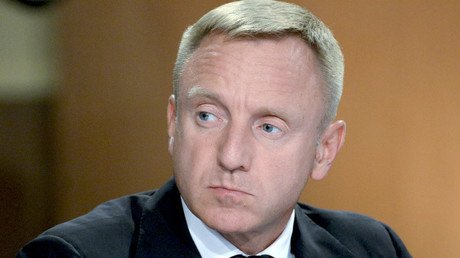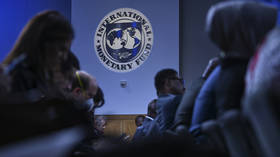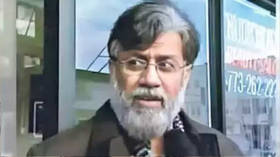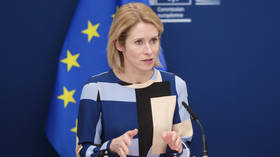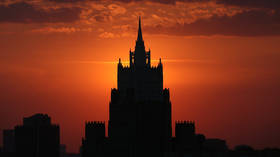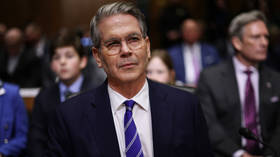Coding-savvy Russia students best China & US to win ‘programming world championship’
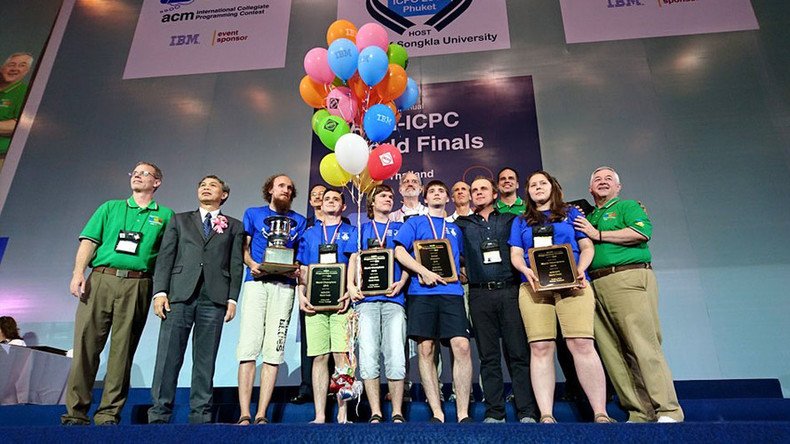
A Russian team from St. Petersburg State University has triumphed in the IBM-sponsored ACM International Collegiate Programming Contest (ICPC), beating 128 teams to win the “programming world championship” to Russia for a fifth straight year.
In the competition’s final stage, which took place this year in Thailand, the coding-savvy students from St Petersburg beat their peers from China’s Shanghai Jiao Tong University, Harvard and fellow Russians students from the Moscow Institute of Physics & Technology (MIPT). The St. Pete team of Stanislav Ershov, Igor Pyshkin and Alexey Gordeev managed to solve 11 problems out of 12 within a five-hour timeframe.
The team is sponsored by the largest European social network VK.com (V Kontakte, or In Contact, sometimes called the “Russian Facebook”), based in St. Petersburg. It received guidance from Andrey Lopatin, a programmer with the company, who is a two-time winner of the competition as a participant in 2000 and 2001 and as a coach in 2014 and 2016.
In total, five Russian teams were awarded medals at the event. MIPT finished fourth and received a gold medal along with Shanghai Jiao Tong University (2nd) and Harvard University (3rd). Massachusetts Institute of Technology (MIT) were placed 6th, ahead of St. Petersburg ITMO University (7th) and Ural Federal University (8th).
Nizhny Novgorod State University, coming from 400 km northeast of Moscow, got a bronze medal, rounding out the top 10.
As ICPC is a team competition, each team is provided with only one computer to complete all the tasks, meaning that the coordination of efforts within a team plays an essential role.
To enter the competition, participants must be students with less than five years of university education completed. They form three-member teams and are required to compete at regional stages before advancing to the world finals, which are held at various locations each year.
READ MORE: Russian universities to top intl rankings by 2020 – Education Minister Livanov to RT
This year’s finals were hosted by the Prince of Songkla University in Phuket, Thailand, which saw more than 1,400 aspiring programmers from 40 countries participate at the rigorous trials to become world champions.
Gerald Lane, ACM-ICPC Sponsorship Executive and Director at IBM, praised the winners and participants of the challenge, saying: “IBM values this opportunity to assemble the brightest students from the world’s leading universities and share with them the technology trends that will shape the future such as tools that allow them to build new innovations fueled by cloud, cognitive, unstructured data and more.”
“These students are the future leaders of our industry and we are committed to fostering their development with these critical technologies as they prepare to enter the global workforce,” he added.
Hacker offers 117 million #LinkedIn login details for sale on #Darknethttps://t.co/BOqXP3fBV2pic.twitter.com/4BYHwMNC4g
— RT (@RT_com) 18 мая 2016 г.
Lopatin told RT that the team had prepared hard for the contest.
“We had 5-hour-long training sessions, three times a week,” he said, adding that the duration of the contest was five hours.
The Russian team had strong competition from its rivals. “At least 10 teams were fighting for the first place,” Lopatin added.
The ICPC has been running for four decades. The first programming challenge, under the auspices of the Association for Computing Machinery (ACM), was held in 1970 and titled the First Annual Texas Collegiate Programming Championship. Prior to the 1990s, the competition was mostly confined to North America with teams only from US and Canada taking part. Since 1989, the ICPC has been headquartered at Baylor University. After IBM became its official sponsor in 1997, the scope and geography of the participants have grown dramatically.
This year, the selection process saw more than 40,000 students from almost 3,000 universities advance to the regional level. In total, more than 300,000 students had a shot at the challenge in 2016.
Russian teams have an exceptional record at the event, having won the contest for five years straight now.
